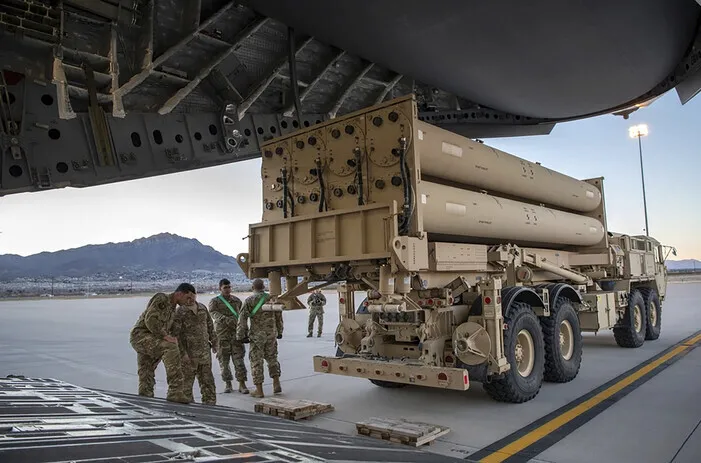hankyoreh
Links to other country sites 다른 나라 사이트 링크
[Guest essay] As the threat of war with Iran looms, will the US rein in Israel?


By Siavash Saffari, associate professor of West Asian studies at Seoul National University
For my 70-year-old mother who lives in Tehran, these are times of anxious anticipation. With the flames of war spreading across the Middle East, inching closer to Iran, she does what many other Iranians do these days: hope for the best, but fear the worst. She asks me what will happen, as if my political science degree came with a crystal ball in which to see the future. But it didn’t, and that is probably for the best. As things stand, maintaining hope for peace may be an exercise in faith.
The prospect of an all-out war between Iran and Israel looms in the context of a year of devastating violence. Gaza is in a death spiral. Beirut, once known as the “pearl of the Middle East,” has seen many of its neighborhoods turn into rubble. Israeli Defense Minister Yoav Gallant recently suggested a similar fate awaits Iran, his threat echoing Benjamin Netanyahu’s long-time position that the “head of the snake” is in Tehran. Iranian officials, for their part, have warned any further escalation from Israel will be met with fire and fury.
Relations between the two powers have gone through many phases. Iran, under the Pahlavi monarchy, was among the first Muslim-majority countries to extend de facto recognition to Israel. Economic, military and intelligence ties grew in the 1960s, but geopolitical shifts throughout the following decade saw growing mutual distrust. During the 1973 Yom Kippur War, Iran sided with the Arab states, supplying them with technical and medical aid. The following year, Iran began financial assistance to the Palestine Liberation Organization. It was around the same time that Iran launched its nuclear program. The Pahlavi king’s dream of possessing an atomic bomb threatened to end Israel’s monopoly on nuclear weapons in the Middle East.
Following Iran’s 1979 revolution, anti-Israel rhetoric became a permanent fixture of Iranian politics. Such rhetoric, however, did not stop the post-revolutionary state from secretly purchasing weapons from Israel during the 1980-1988 Iran-Iraq war. Through these covert dealings, Iran, which had been slapped with an American-imposed arms embargo in 1979, was able to procure much-needed weaponry and ammunition. For Israel, this was an opportunity to weaken its then-arch-enemy Iraq. It was with the help of Iranian intelligence that Israel carried out its 1981 airstrike against Iraq’s Osirak nuclear reactor.
With Iraq abandoning its nuclear ambitions in 1991, Israel turned its attention to Iran, which had resumed its nuclear program with Russian assistance. As early as 1992, then-parliamentarian Netanyahu was calling on the US to pacify the threat of a nuclear Iran. As prime minister four years later, he warned that Iran was “extremely close” to acquiring nuclear weapons. By then, the US had already imposed tough sanctions against Iran. In the early 2000s, following the US occupations of Afghanistan and Iraq, Iran accelerated its nuclear plans. Washington’s response was tougher sanctions and a 2010 joint cyberattack with Israel on Iran’s uranium enrichment facilities.
Cognizant that its conventional military capabilities do not stand a chance against possible US or Israeli attacks, Iran has sought to strengthen the so-called “axis of resistance” as a deterrence strategy. Its anti-Israel and pro-Palestine rhetoric helps sell this strategy across the region and justify the suppression of dissidents at home. Whenever protests erupt, the state accuses oppositional voices of serving Israel’s interests. Dissent is framed as a security threat, and dealt with violently.
So far as the current situation is concerned, there is no indication Iran would be interested in escalation. A series of anti-government protest movements have inflicted it with a crisis of political legitimacy, and decades of crushing sanctions combined with government mismanagement have left the economy in tatters. Communicating a message of de-escalation, Iranian President Masoud Pezeshkian said at a Sept. 23 news conference in New York, “We are willing to put all our weapons aside so long as Israel is willing to do the same.” That, of course, was before Israel bombed Beirut, killing Hezbollah Secretary General Hassan Nasrallah and Iranian General Abbas Nilforushan. After firing about two hundred missiles at Israel in retaliation for the Beirut attack and the earlier assassination of the Hamas politburo chief Ismail Haniyeh on Iranian soil, Iran declared its response was “concluded” unless Israel invites further retaliation.
But Israel is bent on escalation, seeing war with Iran as an opportunity to alter the regional map and establish itself as the undisputed hegemon. Former Prime Minister Naftali Bennett recently wrote on X, “Israel has now its greatest opportunity in 50 years, to change the face of the Middle East.” Escalation would further allow Israel to distract from what many see as a genocide in Gaza, and to continue illegal settlement building in the occupied West Bank. For Netanyahu, endless war also means remaining in power and avoiding prosecution for corruption and bribery.
Can we imagine a path out of the present crisis? Despite its occasional calls for de-escalation, the US government has given free rein to Netanyahu. With billions of dollars in military assistance to Israel — $17.9 billion since Oct. 7, 2023 — the US has considerable leverage to pressure Netanyahu to accept a ceasefire. This is what the Reagan administration did in 1982, restricting military assistance to force an Israeli withdrawal from Beirut. The same leverage may be used to bring an end to one of the root causes of Middle East conflicts, namely Israel’s decades-long occupation of Palestine. Let us remember that one rare occasion when Israel froze settlement construction was in 1991, after George H. W. Bush threatened to withhold financial aid. The key to de-escalation and peace in the Middle East has always been in Washington’s hands. The only question is will Washington choose the path of peace, or will it opt for the path of widespread carnage to help Israel change the face of the region?
Please direct questions or comments to [english@hani.co.kr]
Editorial・opinion
![[Editorial] Korea cannot afford to rush to a deal with the US [Editorial] Korea cannot afford to rush to a deal with the US](https://flexible.img.hani.co.kr/flexible/normal/500/300/imgdb/original/2025/1020/5617609491967904.jpg) [Editorial] Korea cannot afford to rush to a deal with the US
[Editorial] Korea cannot afford to rush to a deal with the US![[Column] Shared dilemmas at a historic turning point for Korea, Europe [Column] Shared dilemmas at a historic turning point for Korea, Europe](https://flexible.img.hani.co.kr/flexible/normal/500/300/imgdb/original/2025/1020/8417609480329443.jpg) [Column] Shared dilemmas at a historic turning point for Korea, Europe
[Column] Shared dilemmas at a historic turning point for Korea, Europe- [Column] Halfway across the world, I’m cheering on Americans fighting for democracy
- [Column] How meritocracy turns into tyranny
- [Column] The real scandal of Korea’s ‘divorce of the century’
- [Column] The meritocracy to fascism pipeline
- [Column] Korea is not an enemy to be plundered
- [Column] Chaebol can’t take credit for KOSPI’s record rally
- [Column] Solving the dilemma of OPCON transfer and inter-Korean relations
- [Column] Korea, don’t trust and don’t be fooled
Most viewed articles
- 1[Column] Shared dilemmas at a historic turning point for Korea, Europe
- 2Korea says ‘real progress’ made on major sticking points with US on trade deal
- 3Head of Korea’s human rights watchdog stroked female employee’s hair, says witness
- 4[Column] The meritocracy to fascism pipeline
- 5Korea can help rebuild US shipbuilding industry, bolster maritime strength, says US think tank
- 6PPP leader under fire for paying visit to disgraced former president Yoon in jail
- 7[Interview] Online scams based in SE Asia already an entire ‘industry,’ says UN expert
- 8From ‘kimbap’ to ‘maknae,’ Oxford English Dictionary sees explosion of Korean loanwords
- 9After catastrophic floods, North Korea rebuilds bigger and better along border with China
- 10[Editorial] Korea cannot afford to rush to a deal with the US